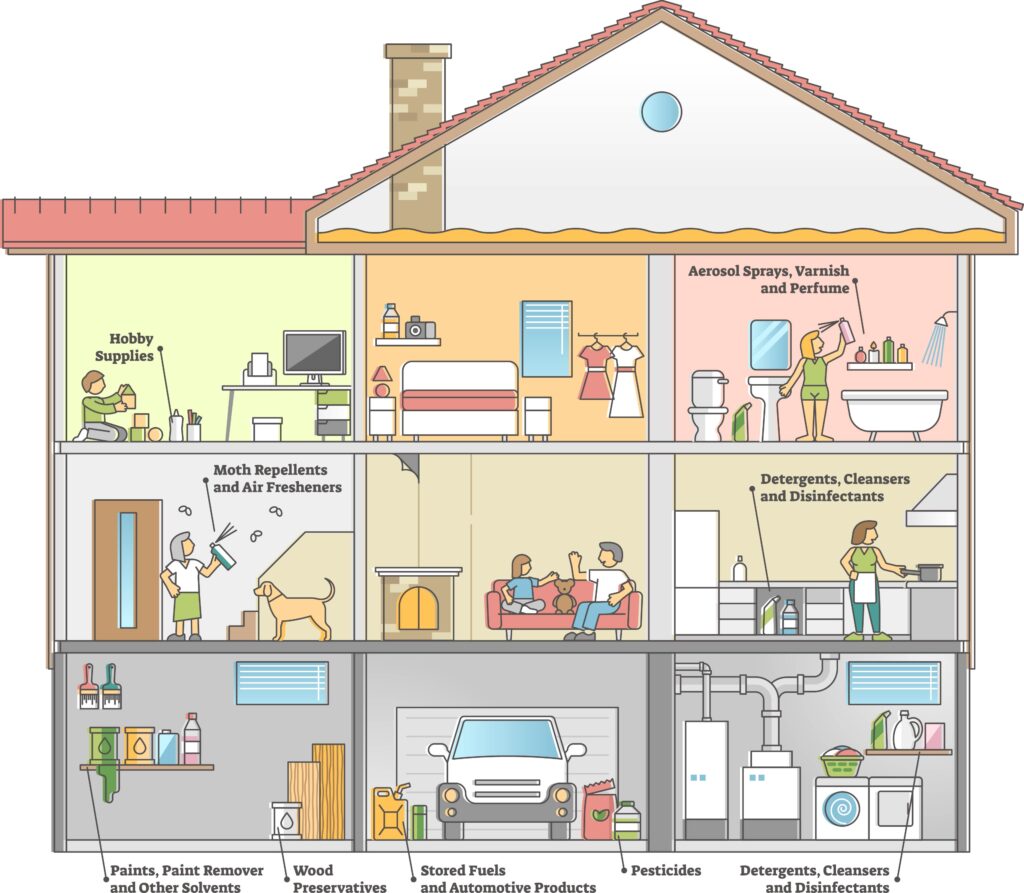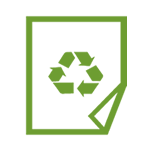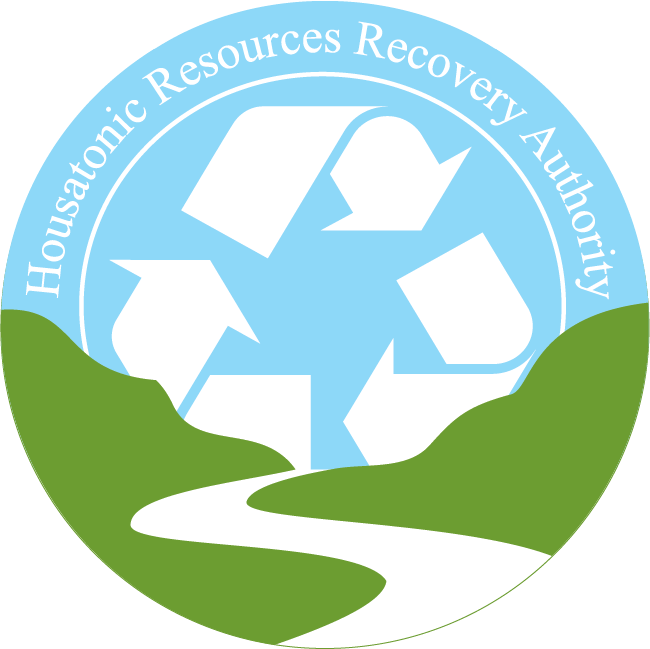Household Hazardous Waste
PROTOCOL for events:
– YOU MUST REMAIN IN YOUR VEHICLE AT ALL TIMES.
– Place only items you want removed at the back of your vehicle.
– Be ready with your driver’s license for proof of residency.
– Workers will remove the contents.
– Wait times vary from 5 to 30 minutes depending on volume of traffic. Please plan.
– The HRRA reserves the right to inspect vehicles with excessive amounts of material.
– Large quantities are subject to fees. Call or email the HRRA if you need guidance. 203.775.4539 or Info@hrra.org
HRRA Municipalities include:
Bethel, Bridgewater, Brookfield, Danbury, Kent, New Fairfield, New Milford, Newtown, Redding, Ridgefield, Roxbury, Sherman, Weston, and Wilton.
Click on your town for alternative disposal options.

Date
Host Municipality
Location
Hours
Participating Municipalities
Printable Flyer
November 1, 2025
Brookfield
Brookfield High School
45 Long Meadow Hill Rd Brookfield
9am – 2pm
All HRRA Towns
September 12, 2026
TBD
TBD
9am – 1pm
All HRRA Towns

October 2026
New Milford
John Pettibone School
2 Pickett District Road New Milford
9am – 2pm
All HRRA Towns as well as Warren, Washington

Click Here
Household Hazardous Waste events are for residents of the listed municipalities above.
If you are from any other Connecticut town outside the HRRA region visit the CT DEEP website for an event sponsored by your municipality or region. Use this link.
Do you have questions? Email: info@hrra.org or call us at 203.775.4539
WARNING: LITHIUM BATTERIES are DANGEROUS. They cause significant fires on waste collection trucks and at recycling facilities. NEVER place in your trash or recycling. Bring to a drop-off location.
What to bring to an HHW event.
- Paints
- Stains and Varnishes
- Paint Thinners & Strippers
- Wood Preservatives
- Resins, Rosins & Adhesives
- Polishes for Furniture, Floor & Metal
- Cleaners for Rugs & Upholstery
- Cleaners for Oven, Toilet Bowl & Drain
- Swimming Pool Chemicals
- Pesticides, Herbicides, Insecticides (including Lawn Care Products)
- Flea Powder
- Moth Balls
- Spot Removers
- Dry Cleaning Solvents
- Lighter Fluids
- Septic Tank Degreasers
- Engine Degreasers
- Waste Fuels (Kerosene, Gasoline)
- Carburetor Cleaners, Brake Fluids
- Transmission Fluids, Car Waxes
- Full or Partially Full Aerosol Cans
- Rubber Cement, Airplane Glue
- Photo Chemicals, Chemistry Sets
- Hobby Supplies
- Rechargeable (Ni-Cd) Batteries
- Camera Batteries
- Mercury Thermostats, Thermometers
- 1lb. Single Use Propane Cylinders
- Vapes
What NOT to bring to a HHW event.
- Empty Aerosol Cans (put in garbage)
- PCB Capacitors
- Smoke Detectors
- Auto Batteries & Tires
- Motor Oil & Antifreeze (Recycle at Town Drop Off Center)
- Ammunition, Fireworks, Explosives (Call the Police Depart.)
- Radioactive Materials
- Unknown Gases
- Controlled Substances
- Pathological Material
- Pharmaceutical or Medical Wastes
- Electronics, Computers, TVs (Recycle at Town Drop Off Center)
- 20lb Refillable Propane Tanks
- CFL/Fluorescent Bulbs (Recycle at Town Drop Off Center)
Disposal of Unused Expired COVID-19 Rapid Tests
Based on current definitions of Regulated Medical Waste (RMW), unused rapid COVID-19 tests that have expired are not considered RMW and can be disposed into the normal waste stream as solid waste. DO NOT bring COVID-19 tests to a HHW day.
Prior to the disposal of any given test product, you should contact the test manufacturer or go the manufacturer’s website to determine if the expiration date has been extended by the FDA.
When disposing of used rapid COVID-19 tests, users should follow the manufacturer’s instructions.
How can I dispose of HHW safely?
All municipalities in HRRA sponsor at least one household hazardous waste collection event each year. These events are free to residents of the sponsoring towns and are paid for by tax dollars from each town. There are no other cost effective, environmentally safe, and legal options for disposal of household hazardous waste available to residents of the HRRA region.
Are all paints considered HHW?
No. Latex paint, the kind that cleans up with soap and water, is not hazardous. Although all paints are accepted at the Household Hazardous Waste collection events, paint can be dropped off at any particiapating paint recycling location. Visit www.paintcare.org for a location near you.
Are there alternatives for reducing the toxic products used in my home?
Yes, there are many common products that can be used around the home that are less toxic than commercially available alternatives. Click to check out the options.
Safety precautions for the use and storage of hazardous household products.
Use proper safety equipment.
The label should tell you what equipment you need when using a specific product.
Work in a well ventilated area.
If a product label says use adequate ventilation be sure to open as many windows as possible or or use a fan when using the product indoors.
Avoid wearing soft contact lenses.
They can absorb vapors and trap them against the eye.
Do not eat, drink or smoke while using hazardous products. These materails can cause eye and skin irritantion
Where does HHW Go?
Paints
Reblending, Fuel blend, Alternative fuel source, Incineration, Alternative daily landfill cover
Oxidizers
Incineration, Chemical stabilization, Reuse
Pesticides
Incineration
Polychlorinated Biphenyl (PCB)
Incineration
Abrasives
Incineration, Stabilization
Corrosives
Neutralize to waste water treatment
Flammable Liquids
Energy recovery, Fuel Blending
Fluorescent Lamps
Recycle
Mercury
Recycle
Batteries (NiCad/Lithium)
Recycle
Explosive
Look for words on the label like: WARNING, STRONG OXIDIZER
Examples: Few consumer products still on the market are explosive. However, some older explosive products may still be stored in the home and certain products may react strongly causing fires or explosions if mixed together. Specific examples include chlorinated pool chemicals, sodium hypochlorite, various peroxides.
Flammable
Look for words on the label like: EXTREMELY or HIGHLY FLAMABLE KEEP AWAY FROM ANY SOURCE OF IGNITION or FLAMES
Examples include: Gasoline, kerosene, fuel oil, butane, oil based paints, paint thinners, and solvents.
Posion
Look for words on the label like: HARMFUL OR FATAL IF SWALLOWED USE ONLY IN WELL-VENTILATED AREA
Examples include: Pesticides, weed killers, antifreeze, paint strippers, some solvents & cleaners, moth balls, rodent bait.
Corrosive
Look for words on the label like: CORROSIVE AVOID CONTACT WITH SKIN OR EYES CAN CAUSE SEVERE BURNS ON CONTACT
Examples include: Drain cleaners, rust removers, oven cleaners, toilet bowl cleaners, and acids
